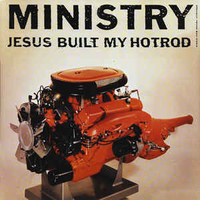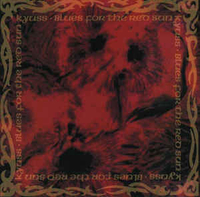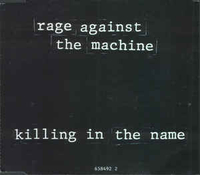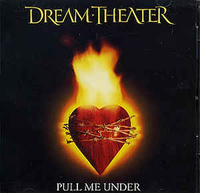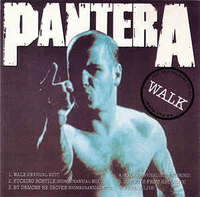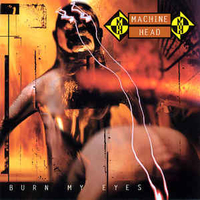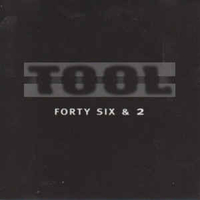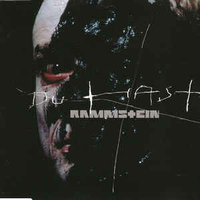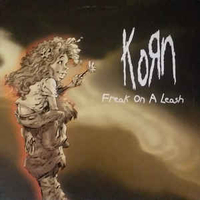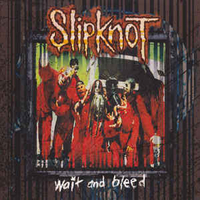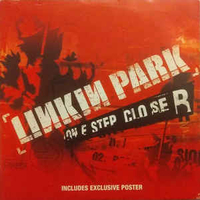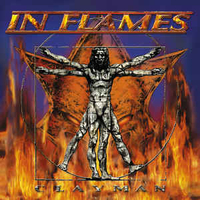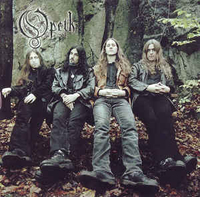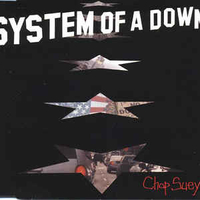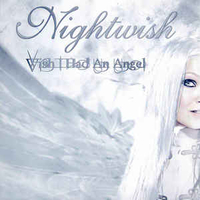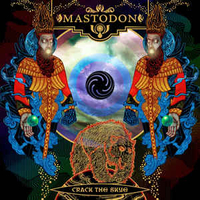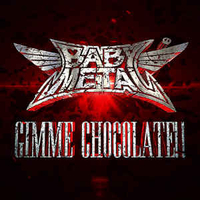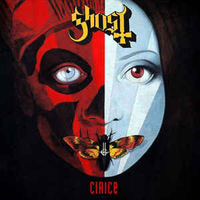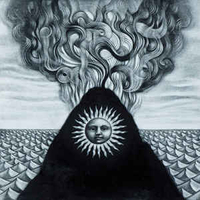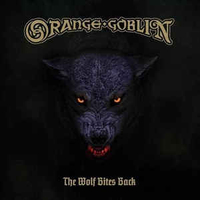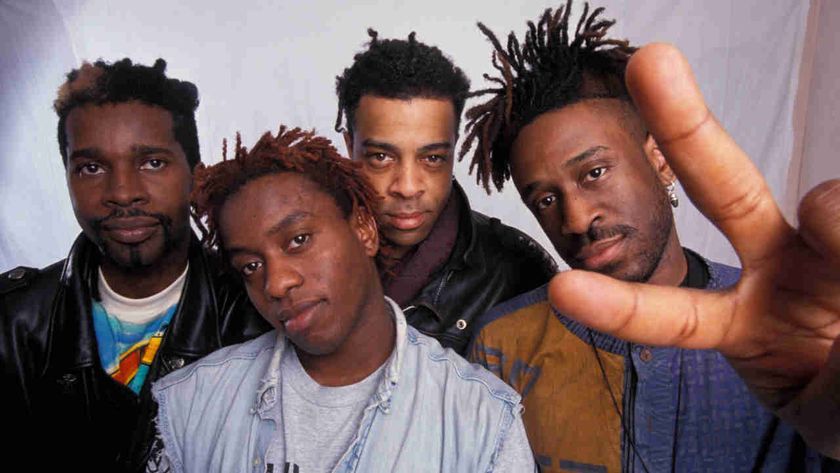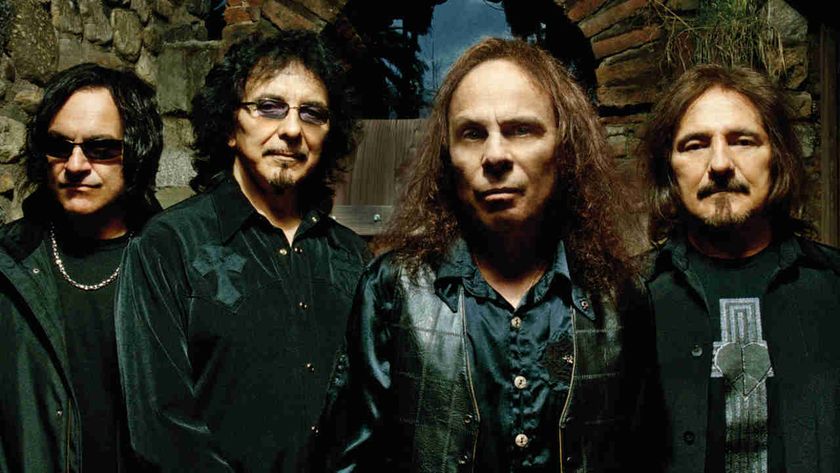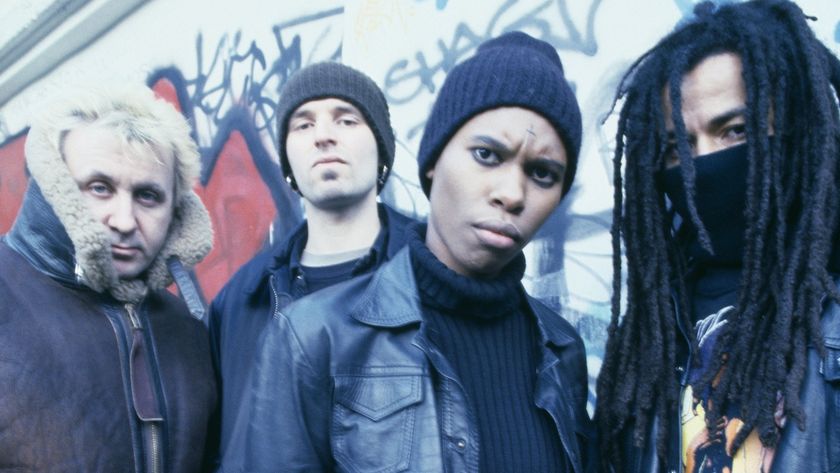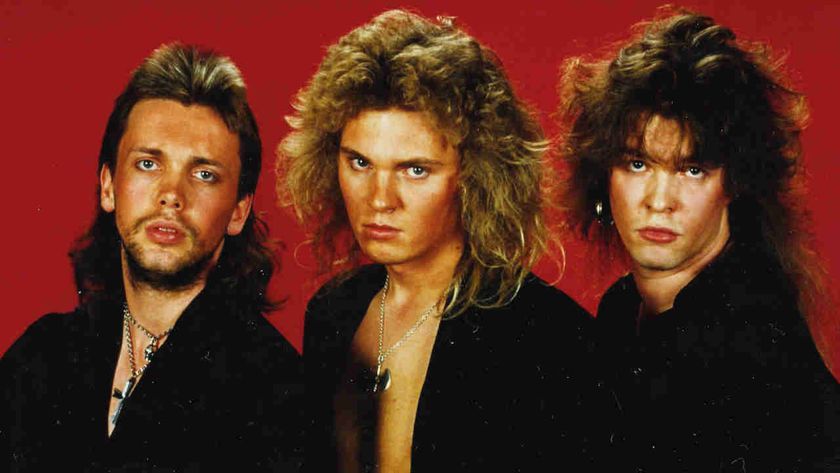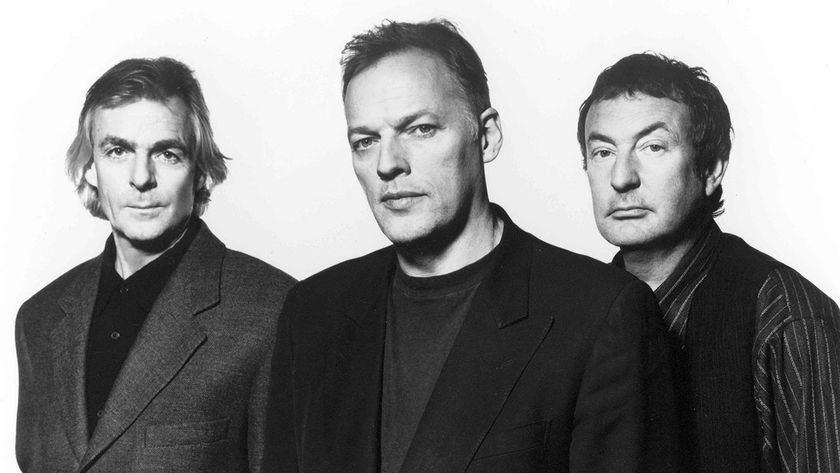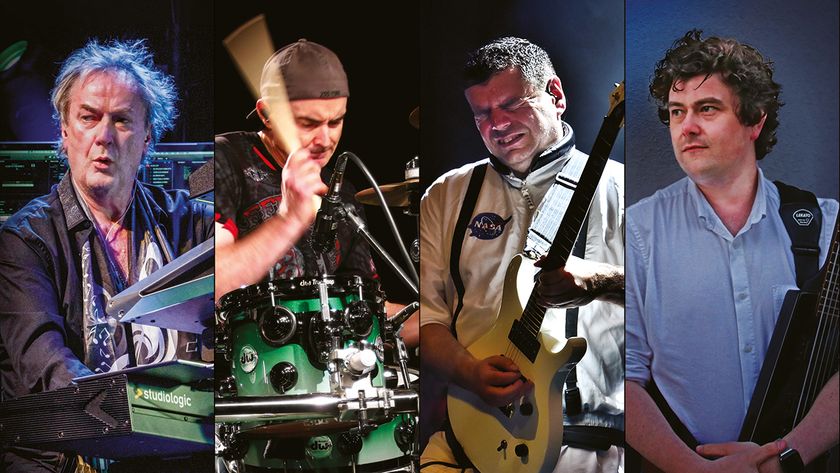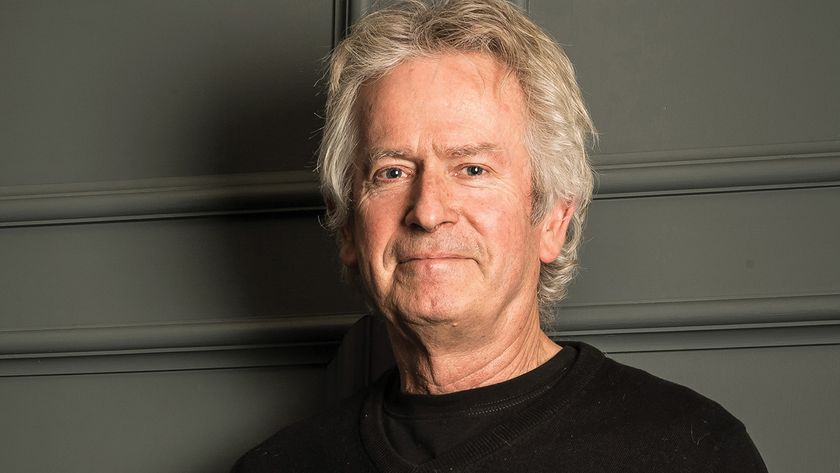Ministry - Jesus Built My Hot Rod (1991)
The band that began as virtually a disco outfit have come to be lauded as one of the most important industrial-metal names of them all. Jesus Built My Hotrod encapsulates everything that made Ministry so special – the driving, forceful refrain, the heady samples, the slanted vocals from Al Jourgensen – all wrapped up in high-speed humour. This is dance music for those who love Killing Joke and Suicide.
Metallica - Enter Sandman (1991)
The Black Album began the transformation of Metallica from being a big fish in a sizeable pond to being one of the biggest bands on the planet, helped hugely by this monster. With its lengthy, thumping, guitar-stabbing intro bringing it to the boil, melodic but dark verses and sudden-stop chorus, Sandman single-handedly expanded their audience to take in millions who thought they didn’t like metal, and kept them on board.
Kyuss - Thumb (1992)
While there was a stoner sound before Kyuss – and others such as Queens Of The Stone Age would subsequently take this further – there’s little doubt that this was the band that defined what ‘stoner metal’ was all about. And they were never better than on Thumb. It’s the embodiment of stoner rock – a heavyweight blues base topped with a real psychedelic distortion.
Rage Against The Machine - Killing In The Name (1992)
Although the seeds were sown in the previous decade by Aerosmith and Run DMC, the concept of rap-metal came into its own later in the 90s. But never was it so virulently and powerfully pursued as here. Rage Against The Machine were a band who were prepared to expose the ills and hypocrisy of the era, while matching this with some of the most intense music of the decade – and Killing In The Name illustrates it perfectly. They gave metal back its voice of conscience, and budding guitarists a new hero in Tom Morello.
Dream Theater - Pull Me Under (1992)
The whole idea of progressive rock was in the doldrums by the time Dream Theater came on the scene, yet the New York quintet actually succeeded in giving the genre some much-needed credibility. Pull Me Under proved it was possible for music to be complex and progressive musically while having a powerful melody at its heart. This was prog-metal for the masses.
Pantera - Walk (1992)
At a time when something fresh was needed to boost the heaviest end of the musical spectrum, along comes metal’s brightest new guitar star: Dimebag Darrell, a man who virtually reinvented the riff with this strutting, heavy-as-lead groove. The band managed to grab the classic metal approach of Sabbath and Metallica, shake it up and give it a renewed sense of purpose in the grunge-dominated jungle.
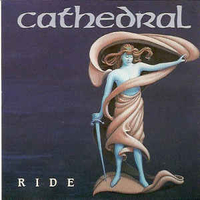
Cathedral - Ride (1993)
With the band having evolved from the harrowingly bleak plod of their early releases, Cathedral’s second album saw them move into psychedelic, drug-induced realms whose groove-laden bounce and mad-sage blurting of surreal lyrics proved seminal for both doom and stoner rock. Ride has proved to be one of the most memorable tracks they’ve recorded, with a Doctor Who theme-style riff to ring throughout the ages.
Machine Head - Davidian (1994)
At the time Machine Head released their debut album, thrash was lost in its own myth. But this track, more than any other, gave the genre a fresh taste for blood. While part of the metal world turned to the sounds of nu metal, Davidian proved that sticking to the traditional values gave a pointer to an energetic future. It was the most important thrash hymn for many years.
Tool - Forty Six & 2 (1996)
With its 7/8 time signature, ghostly processed bass line and a verse vocal that whispered in your ear like a twisted lullaby, the Californian prog-metallers’ 1996 single was deeply unsettling – even before frontman Maynard James Keenan explained that the title was about the “horrible mutation” that would result from an irregular number of chromosomes.
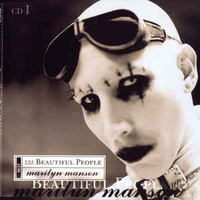
Marilyn Manson - The Beautiful People (1996)
While Manson had already made a mark as a protégé of Nine Inch Nails’ Trent Reznor and someone who colourfully courted controversy, if he was to be anything other than just a passing frightmare then he needed a song to showcase both his musical and artistic ideologies. This was it. The Beautiful People launched his legend, and still defines his philosophy better than anything else.
Rammstein - Du Hast (1997)
Perhaps it was inevitable that a German band would take the industrial groove, shake it about and give it a major overhaul. Rammstein did just that with their second album, Sehnsucht, and Du Hast typified their approach. It’s a gloriously ludicrous militaristic march, blessed with a firm beat and also a quirky sense of humour. A stage show packed full of drama and pyrotechnics would ensure that the band and their sound would appeal to the masses and not to just a cult metal following.
Korn - Freak On A Leash (1998)
Conceived by frontman Jonathan Davis as a pop at his paymasters (“It was about how I was being pimped off by the record industry”), this early single found nu-metallers Korn brimming with musical confidence, and sufficiently adept to segue from the intro’s spidery guitar lines into a guttural rap section punctuated by what sounded like the honk of a clown car.
Slipknot - Wait And Bleed (1999)
The disintegration of society at the end of the last century was brought to a crescendo by a nine-man masked demolition machine from Iowa. Nihilism and dystopia were their pillars. Wait And Bleed became their rally call. It also proved to the world that there was talent beyond the boiler suits, propelling Slipknot and metal into a new decade.
Linkin Park - One Step Closer (2000)
Against all the odds, Linkin Park made the concept of pop-metal contemporary and fashionable again. Why? Because they knew how to write a clever tune which was hummable while also carrying an edge. In fact it’s this very track that propelled Linkin Park to stadium-eating megaband status, and proved the timeless quality of great songs – whatever the passing fad might be.
In Flames - Only For The Weak (2000)
These days it’s easy to take the Swedish metal sound for granted. But here is really where it got a focus. Only For The Weak is the best example of In Flames’ pioneering approach: duelling guitars in a power-metal setting, with death-metal overtures and just a touch of gothic darkness, all assembled under the watchful gaze of an intense melody.
Opeth - The Drapery Falls (2001)
When Opeth decided to work with Steven Wilson as their producer for the Blackwater Park album, who could have predicted that they’d reinvent the progressive metal genre? But that’s precisely what they did with The Drapery Falls. The mix of brutal metal and more esoteric rhythms didn’t seem so much like a marriage of styles, more like the birth of a new musical life force.
System Of A Down - Chop Suey (2001)
Everyone now assumes the System Of A Down style has been with us for eons. Yet it was only in 2001, with the Toxicity album, that the Armenian-Americans got into their stride. What they created was an angular attack on nu metal, with overt political lyrical edginess. It was both confrontational, yet also considered. What’s more, their vocal harmonies gave the band an extra dimension.
Nightwish - Wish I Had An Angel (2004)
This is the best example of the way that Nightwish combined their goth-metal music with the soaring operatic vocals of Tarja Turunen, all encapsulated in what is essentially a finely tuned pop song. There’s a charismatic sensibility here, overcoming any uneasiness in the increasingly fractured relationship between singer and band.
Mastodon - The Czar (2009)
The band who’ve been hailed by many as the new metal messiahs, Mastodon reached a crescendo on this epic from the breathtaking Crack The Skye. This is how you develop a 10-minute piece. It has all the ingredients which have helped to establish Mastodon’s pre-eminence. It leaves you elated, breathless, yet feeling like it could have been even longer.
Babymetal - Gimme Chocolate!! (2014)
The perfect encapsulation of this Japanese schoolgirl trio’s so-called ‘kawaii metal’ (literally translated as ‘cute metal’), pummelling four-minute thrasher Gimme Chocolate came with a chorus so sweet it stripped the enamel from your teeth, not to mention a video that has chalked up a whopping 106 million views to date. Five years later, the song that launched Babymetal still sounds like Hello Kitty going on a killing spree.
Ghost - Cirice (2015)
Frontman Papa Emeritus’s daughter chose this doomy rocker as the lead single from the Meliora album, demonstrating excellent (if macabre) taste for an eight-year-old. The song scored a Grammy for Best Metal Performance for Ghost, but check out the video – styled as a retro-horror and set at a primary school talent show – for the priceless moment when a pint-sized Papa and his Nameless Ghouls hijack the stage.
Gojira - Stranded (2016)
Gojira drummer Mario Duplantier deemed Stranded an “easier” song than the Frenchmen’s trademark highly complex brand of death metal, but that didn’t make it any less potent. Built on an industrial crunking riff with a pitch-shifted squeal, Stranded wasn’t quite right in the head – an impression underlined by a video in which the band perform while surrounded by fitting mental patients and dog-masked nurses.
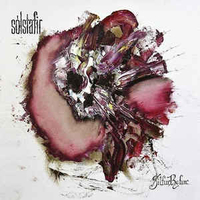
Sólstafir - Silfur-Refur (2017)
The fact that it’s shrieked in the postmetallers’ Icelandic tongue only makes Silfur-Refur seem more unknowable and unsettling. “The song revolves around having a sick ghost version of yourself taking control of your life,” explains frontman Aðalbjörn ‘Addi’ Tryggvason. “You resist with all you have, but you simply don’t stand a chance. It travels.
Trivium - The Sin And The Sentence (2017)
Matt Heafy’s brutal guitar anthemics marked this out as the highlight from Trivium’s eighth album, but the seed was planted by a song title dreamed up by bassist Paolo Gregoletto on a plane ride: “I was really interested in the culture online of people piling on people, but using the metaphor of the witch hunts. That phrase – The Sentence And The Sin – fit perfectly.”
Orange Goblin - Sons Of Salem (2018)
Leading out last year’s The Wolf Bites Back album, Orange Goblin’s finest hour to date was a vintage hard-rock swagger whose ‘rise up!’ refrain had a flesh-creeping inspiration. “The lyrics are about the sons of the Salem witches returning from the grave,” says frontman Ben Ward, “to seek vengeance on the religious fools that murdered their mothers during the witch trials.”
Classic Rock Newsletter
Sign up below to get the latest from Classic Rock, plus exclusive special offers, direct to your inbox!
